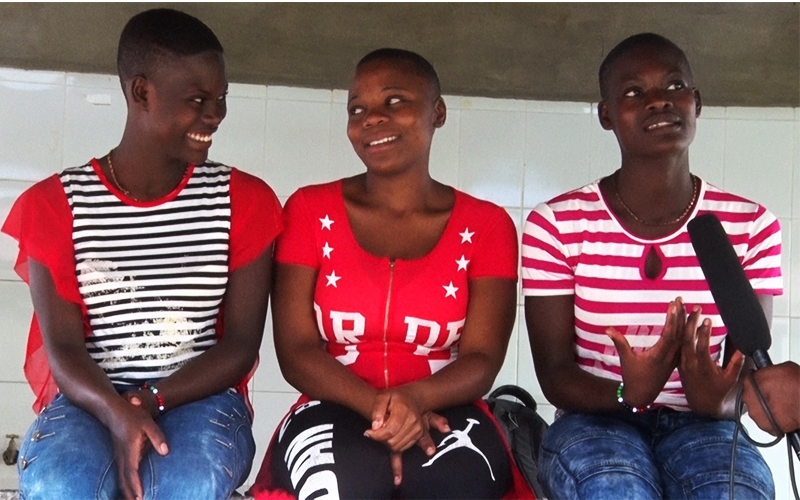
"When Maria cannot find her pencil, she pinches and slaps me, accusing me of stealing it," complains Consolatha.īut they quickly make it up and forgive each other, says Maria, with a twinkle in her eye. "What they need is a special bigger and stronger modern wheelchair," she adds. "The children are getting heavier and heavier as they get older and I am not getting younger," she said. They play with them and help Mrs Mbilinyi with the wheelchair as she takes the girls up the hill to school. Mrs Mbilinyi, a divorced mother of two teenager boys and who has known the twins from their infancy, says that the twins do not regard themselves as different from the other children in the area.Īnd their schoolmates treat them as such.

The hospital's matron, Italian Sister Magda Boscolo, says that the twins have different personalities. Maria and Consolatha started school this year. "We just know it and accompany each other to the toilet," says Consolatha. "When surgeons and consultants in South Africa and Europe were consulted, they said that it is not possible to separate them, because they are sharing organs like the liver, stomach, guts, and lungs, which means that one depends on the other," said Dr Rainer Brandl.ĭependency is the key word in their life because Maria tells me that when Consolatha wants to go to toilet, Maria would know and inform their carer and vice versa.

She is now stronger and healthier than Maria.ĭr Rainer Brandl told BBC Network Africa that their lungs are sandwiched by their bodies, in such a way that they cannot expand.ĭoctors can only hope and pray for the twins' lives, as they cannot separate them. Maria has been eating for the two of them until they were five-and-a-half, when Consolatha started to eat on her own. The health of Maria, who has had some breathing problems since birth, but who has a better appetite than her sister, Consolatha, is deteriorating. They have two heads, two hearts and four arms.Īnd they share lungs, an abdomen, rectum and anus and urinary passage. Maria controls the movements of the right leg, while Consolatha controls the left.Īnother short leg protrudes from their back, but it's non-functional. Their two legs are longer than the rest of the body. They can neither stand nor walk and when they want to move they can only slide on smooth surfaces using their bottom. The twins are about 14 inches high when they are positioned upright, with their legs lying flat on the floor. "I removed them myself as they were shaking badly and became very very loose," Maria shyly tells me in Kiswahili. In their orange and red dress, with red and white hats, in the style of a Father Christmas hat, they smile showing their small white teeth with a few gaps indicating that they have lost four of their milk teeth.

One of them has pulmonary problems, and doctors fear that this will affect her sister's life, should her situation get worse.īut the girls do not share their doctors' fears, as they live their life to the full. Their parents abandoned them after they were born and they have been in the care of Italian missionaries of Consolatha Fathers' Catholic Church in Ikonda village. It was a three hanky affair alright but did shed light on the fact that children suffering from Down’s Syndrome need proper treatment and care and deserve love and affection as much as normal children.The six-year-olds, Maria and Consolatha, have separate heads and arms, and are joined from the navel downwards. His son grows up to be a musician despite the broken home and it’s only later, when David dies, that his wife and son come to know his secret and begin to see him in a new light.
#Tanzanian movie the lost twins series
He finds out about his daughter and begins chronicling her life in a series of photographs. Ironically, the child with the Down’s Syndrome grows up in a happy atmosphere while David and his wife drift apart. But the nurse takes pity on the child, runs away to Pittsburgh and starts a new life there. He immediately recognises that the girl is suffering from Down’s Syndrome and tells the nurse Caroline Gill (Emily Watson) to take the girl away to a facility for orphaned children.

One stormy night Dr David Henry’s (Dermot Mulroney) wife gives birth to twins, a boy and a girl. The best-selling novel The Memory Keeper's Daughter written by American author Kim Edwards formed the basis of this film directed by Mick Jackson and starring Emily Watson, Dermot Mulroney and Hugh Thompson.


 0 kommentar(er)
0 kommentar(er)
